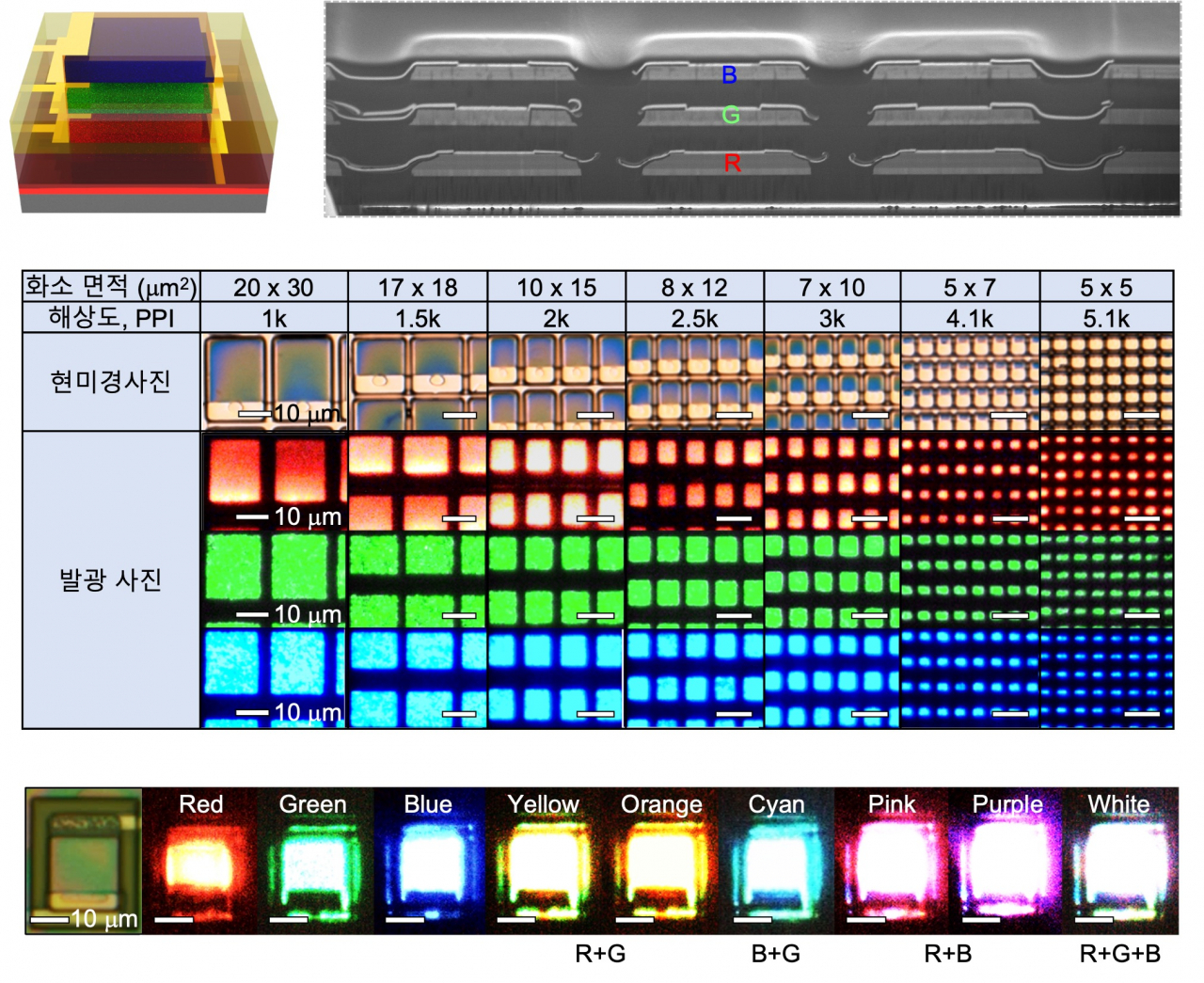International research team developed new micro-LED for better VR technology

 |
|
Full-color micro LED vertical pixel structure (top), pixel photographs of 1000 to 5100 ppi densities (center), and the color emission expressed through a newly developed pixel (bottom) (Sejong University) |
A research team comprised of experts from Korea, the United States and Europe developed “full-color micro LEDs with ultra-fine vertical stacked pixel structures” which can enable the production of more vivid screens.
A joint research team led by Hong Young-joon, a professor of Nanotechnology and Advanced Materials Engineering at Sejong University, has developed a new method to reduce costs and time of producing micro LEDs — devices that are smaller than 100 micrometers in length and width. This technology is expected to enable more graphic images of mobile gadgets, VR, and AR devices.
The researchers developed a 4-micrometer sized device by separating red, green and blue light-emitting LEDs from wafer, stacking the separated LED devices vertically like pancakes, and carving the surface with light. A display made with this new micro LED device can have resolution of 5100 pixels per inch, which is a hundred times greater than that of the latest smartphones, which are usually around 400 to 500 ppi.
“This technology provides a cheap, easy, fast and accurate way to produce ultra-resolution displays and the new pixel created through new method is the smallest pixel that expresses total natural colors,” said Professor Hong and Professor Kim Ji-hwan of the Massachusetts Institute of Technology in the US in a press release.
The result of the research, which involved Sejong University, MIT, the European campus of Georgia Institute of Technology and the University of Virginia, was published in the British journal Nature on Feb. 1.
By Lee Jung-youn (jy@heraldcorp.com)



